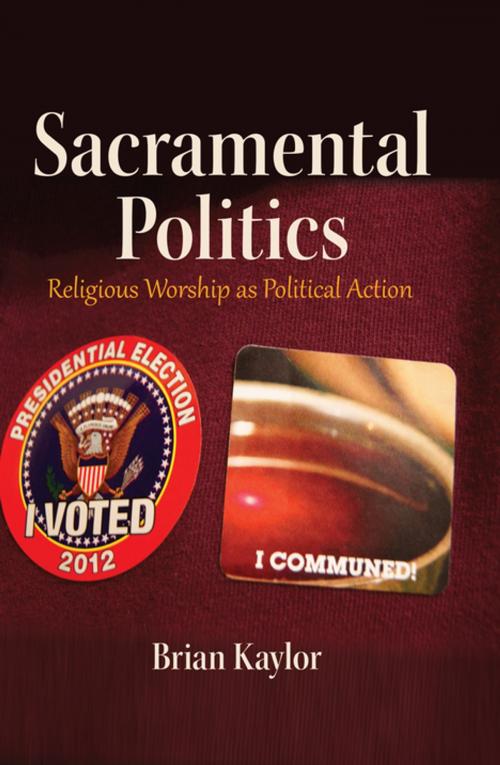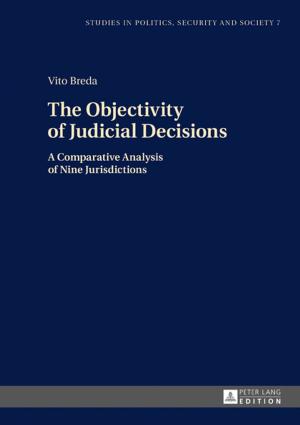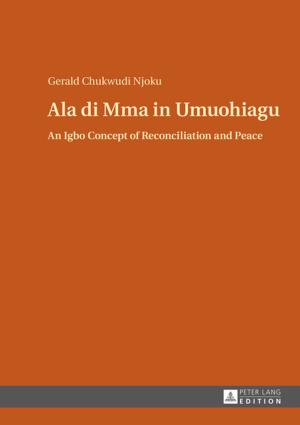Sacramental Politics
Religious Worship as Political Action
Nonfiction, Religion & Spirituality, Christianity, Church, Church Institutions & Organizations, Reference & Language, Language Arts, Communication, Social & Cultural Studies, Political Science, Government, Social Policy| Author: | Brian Kaylor | ISBN: | 9781454195542 |
| Publisher: | Peter Lang | Publication: | February 28, 2014 |
| Imprint: | Peter Lang Inc., International Academic Publishers | Language: | English |
| Author: | Brian Kaylor |
| ISBN: | 9781454195542 |
| Publisher: | Peter Lang |
| Publication: | February 28, 2014 |
| Imprint: | Peter Lang Inc., International Academic Publishers |
| Language: | English |
Religion and politics have often been called taboo topics for polite dinner conversation, but in political campaigns and religious services, the two often mix. This book looks at how religious worship remains embedded with inherent political messages and behaviors, showing that conflicts between church and state exist not just in the public arena, but in each sanctuary and house of worship. To explore this religious-political tension, the book first examines more obvious examples of worship as political action, such as when candidates speak during church services or when political parties hold prayer services at party events. The initial analysis acts as a foundation for the idea of worship serving a political purpose, and is followed by analysis of non-partisan and less obvious political worship services. Religious sacraments (such as baptism, confirmation, communion/mass, and confession) function as key moments in which religious participants pledge allegiance to a power that resides outside Washington, D.C. or statehouses, thus highlighting the alternative political messages and space carved out through worship.
Religion and politics have often been called taboo topics for polite dinner conversation, but in political campaigns and religious services, the two often mix. This book looks at how religious worship remains embedded with inherent political messages and behaviors, showing that conflicts between church and state exist not just in the public arena, but in each sanctuary and house of worship. To explore this religious-political tension, the book first examines more obvious examples of worship as political action, such as when candidates speak during church services or when political parties hold prayer services at party events. The initial analysis acts as a foundation for the idea of worship serving a political purpose, and is followed by analysis of non-partisan and less obvious political worship services. Religious sacraments (such as baptism, confirmation, communion/mass, and confession) function as key moments in which religious participants pledge allegiance to a power that resides outside Washington, D.C. or statehouses, thus highlighting the alternative political messages and space carved out through worship.















